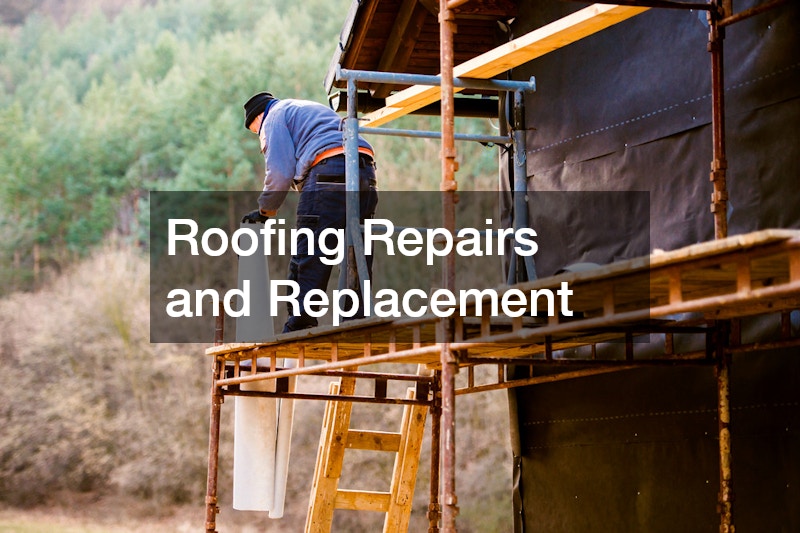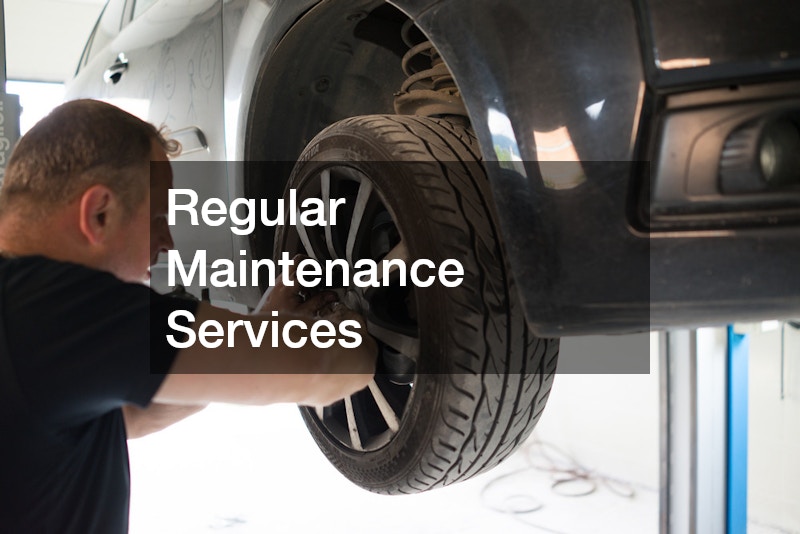
Investing in home or auto upgrades can be costly but often necessary to maintain property value, safety, and functionality. Understanding the expenses associated with these investments helps you make informed financial decisions. Below, we explore the costs involved in some of the most common home and vehicle upgrades, repairs, and installations, providing a comprehensive view of what to expect and how to plan financially for these major investments.
Home Investment Costs
1. Roofing Repairs and Replacement

Roofing is one of the largest investments a homeowner can make. Not only does a roof protect the home from external elements, but it also provides insulation, helping to maintain indoor temperatures and reduce energy costs. The cost of roofing projects varies widely based on the materials used, the size of the home, and the complexity of the installation.
For a traditional asphalt shingle roof, which is commonly used due to its affordability and durability, homeowners can expect costs to range from $5,000 to $12,000. Higher-end materials, such as metal or tile, offer better durability and aesthetic appeal but come with a much steeper price tag, often costing between $10,000 and $25,000 or more for a complete replacement. Labor costs also factor into the final expense, especially if you need specialized roofing contractors to handle steep slopes or complex designs.
Regular maintenance and timely repairs can extend the lifespan of a roof, potentially saving homeowners thousands of dollars by preventing the need for premature replacements. Many roofing experts recommend having a professional inspection every few years to catch small issues before they become larger, more expensive problems.
2. Window and Siding Replacement
Replacing windows and siding offers multiple benefits, including enhanced energy efficiency, improved aesthetics, and even increased property value. However, it can be a costly endeavor. The expense of window and siding replacement depends on materials, the home’s size, and the labor involved.
For windows, the cost varies depending on the style and material. Standard vinyl windows can range from $300 to $700 per window installed, while premium wood or fiberglass windows can cost anywhere from $800 to $1,200 each. For a typical home with 10 to 20 windows, the total expense for replacement can quickly add up.
Siding replacement, similarly, varies based on material choices. Vinyl siding, a common option for its durability and affordability, can range from $5,000 to $14,000 for an average-sized home. Fiber cement siding, a higher-end option with added durability, can cost $10,000 to $20,000 or more, depending on labor and design. While the upfront costs are high, these window and siding replacement upgrades provide long-term benefits in energy savings and property value.
3. HVAC Services
Heating, ventilation, and air conditioning (HVAC) systems play a critical role in maintaining comfort and air quality. The cost of installing a new HVAC system can range from $5,000 to $10,000, depending on the type of system, the size of the home, and the unit’s energy efficiency. Modern, high-efficiency systems are more costly upfront but often save homeowners on energy bills over time.
In addition to the installation, regular HVAC services are necessary to keep the system running efficiently. Services such as annual inspections, filter changes, and duct cleaning can cost between $150 and $500 per service call, depending on the complexity of the system. These small expenses are worthwhile, as they help prevent breakdowns and extend the life of your HVAC unit, reducing the likelihood of costly emergency repairs or replacements.
4. Water Heaters
Water heaters are essential for daily household activities, from bathing to cooking. The cost of a new water heater installation depends on the type chosen. Traditional tank water heaters are generally more affordable, costing between $800 and $1,500, including installation. Tankless water heaters, which provide hot water on demand and save on energy costs, are more expensive, often costing between $2,000 and $4,500.
In addition to installation costs, water heaters require periodic maintenance. For example, flushing the tank to remove sediment buildup and checking for leaks can prevent potential issues and prolong the lifespan of the unit. Spending a small amount on maintenance every year can prevent larger repair bills down the road, helping you get the most from your investment.
5. Local Garage Door Repairs and Installation
Garage doors not only provide access to your vehicle and storage but also add to the home’s curb appeal. Malfunctions in the garage door system, such as broken springs, damaged panels, or misaligned tracks, are common and typically require prompt attention to ensure security and safety. Local garage door repairs for minor issues can range from $150 to $400.
However, if the entire garage door needs replacement, the cost can rise significantly. New garage door installations can range from $1,000 to $3,500, depending on the style, material, and customization options. Opting for high-quality materials, such as wood or insulated steel, may increase upfront costs but provides durability and better insulation, making it a worthwhile investment over time.
6. Landscaping and Outdoor Projects

Landscaping enhances both the aesthetic appeal and functional space of a property. Landscaping companies offer a range of services, from basic lawn maintenance to extensive outdoor transformations. Costs vary widely based on the scope of the project. Basic landscaping services, like lawn mowing and tree trimming, typically cost between $50 and $200 per service, while larger projects involving garden design or hardscaping can cost thousands.
For major outdoor additions, like hiring pool builders to install a swimming pool, homeowners can expect to invest anywhere from $30,000 to $70,000. Pools add significant appeal and value but come with ongoing maintenance expenses, such as cleaning, chemicals, and occasional repairs. For those considering a swimming pool, it’s essential to budget not only for the initial installation but also for annual upkeep.
7. Electrical Work and System Upgrades
Electrical systems are a critical part of any home, powering everything from lighting to appliances. Simple repairs, such as fixing outlets or installing ceiling fans, generally cost between $100 and $500. However, major electrical projects, such as upgrading the main electrical panel, can cost between $1,000 and $3,000 or more, depending on the complexity and the home’s electrical needs.
Hiring a licensed electrician is essential for all major electrical work to ensure safety and compliance with local building codes. Investing in professional services reduces the risk of electrical hazards and ensures that your system can handle the demands of modern appliances and smart technology.
Vehicle Investment Costs

1. Car Touch-Up Paint and Bodywork
Maintaining a vehicle’s appearance is essential for retaining its value and preventing rust or corrosion. Minor paint repairs, such as car touch-up paint services, can address small scratches or chips at a relatively low cost, ranging from $50 to $300, depending on the size and location of the damage. Investing in touch-up paint as soon as minor scratches appear can help you avoid more extensive—and expensive—repairs down the line.
For more extensive paint repairs or full bodywork, costs can escalate significantly. If the entire car requires repainting, the cost can range from $1,000 to $3,500 or more, depending on the paint type, quality, and labor involved. Regular maintenance and addressing small dings and scratches promptly can save money in the long run by keeping the vehicle in good condition.
2. Diesel Engine Repair
Diesel engines are known for their durability and fuel efficiency, making them a popular choice for trucks and commercial vehicles. However, when diesel engines require repairs, the costs are often higher than those for gasoline engines due to the specialized components and expertise required. Minor repairs, such as replacing fuel injectors or glow plugs, can range from $200 to $1,000.
For more significant diesel engine repair needs, such as an engine overhaul or turbocharger replacement, expenses can run between $2,000 and $8,000. Routine maintenance, including regular oil changes, fuel system cleaning, and timely filter replacements, is essential for keeping diesel engines running smoothly and minimizing costly repairs.
3. Local Garage Door Repairs for Commercial Vehicles
Businesses that rely on commercial garages for vehicle storage and repair facilities may need regular maintenance for their garage doors. Commercial garage door repair costs for minor issues can range from $200 to $600. However, full replacements can be costly, sometimes exceeding $5,000, particularly for large industrial garage doors used in commercial settings.
Maintaining these doors is critical for ensuring easy vehicle access and protecting valuable inventory or equipment. Regular inspections and preventive maintenance can prevent costly repairs and operational disruptions.
4. Regular Maintenance Services

Routine maintenance is crucial for extending a vehicle’s life and reducing long-term costs. Services such as oil changes, tire rotations, and brake inspections are relatively affordable compared to major repairs. For example, oil changes typically cost between $35 and $75, while brake inspections and replacements may range from $150 to $500, depending on the vehicle and components used.
For cars with advanced features, such as hybrids or electric vehicles, maintenance costs can vary. It’s essential to follow the manufacturer’s maintenance guidelines to avoid voiding warranties and ensure the vehicle runs efficiently.
5. Windshield and Window Repairs
Damaged windshields and windows are not only unsightly but can also impair visibility and reduce the vehicle’s safety. Minor repairs, such as filling small chips in a windshield, generally cost between $60 and $100. However, if the windshield has a large crack or damage near the edges, replacement may be necessary. Replacing a windshield typically costs between $200 and $400.
For power window repairs, the expense usually falls between $150 and $400, depending on the complexity of the mechanism and whether the repair requires parts. Quick repairs prevent cracks from spreading, saving you from needing more extensive repairs later.
6. Battery and Electrical System Repairs
A vehicle’s battery typically lasts 3 to 5 years, with standard car battery replacements costing around $100 to $200. However, hybrid and electric vehicle batteries are significantly more expensive, sometimes reaching thousands of dollars for a replacement.
Other components in a vehicle’s electrical system, such as the alternator or wiring, can also require repair or replacement. Costs for these services typically range from $200 to $800. Regular battery checks and prompt attention to electrical issues can help extend the lifespan of these components, reducing the need for more frequent replacements.
7. Specialty Services for Unique Vehicles
Certain vehicles, like classic cars or performance models, may require specialty services. Classic car restoration, for instance, can range from a few thousand to tens of thousands of dollars, depending on the level of detail involved. High-performance upgrades, such as engine tuning or custom exhausts, add significant costs but are often essential for maintaining specific vehicle types in top condition.
Specialized maintenance services for unique vehicles ensure that they retain their value, perform optimally, and stay true to their original style or specifications. Owners of classic cars or high-performance vehicles should budget for these unique maintenance needs, as they often exceed standard repair costs.
Investing in major home and vehicle upgrades is a significant financial decision that requires careful planning. By understanding the typical costs associated with services like roofing, window and siding replacement, HVAC services, or diesel engine repair, you can make better-informed choices and plan your budget accordingly. Each of these investments enhances functionality and aesthetic value, contributing to the long-term worth and safety of your property or vehicle. Regular maintenance and timely repairs go a long way in minimizing expenses, ensuring that these assets serve you well for years to come.



